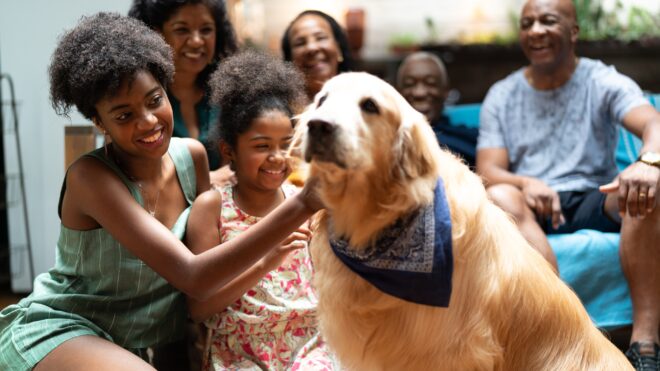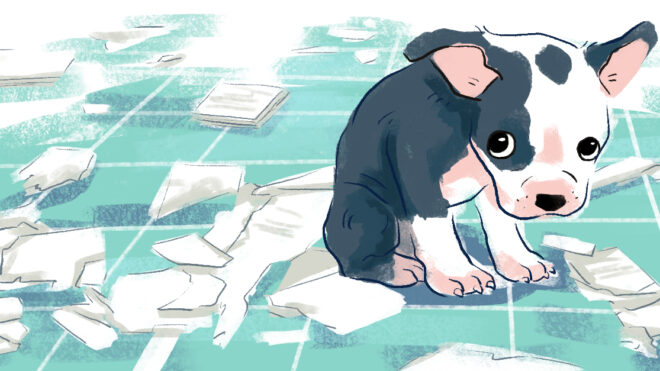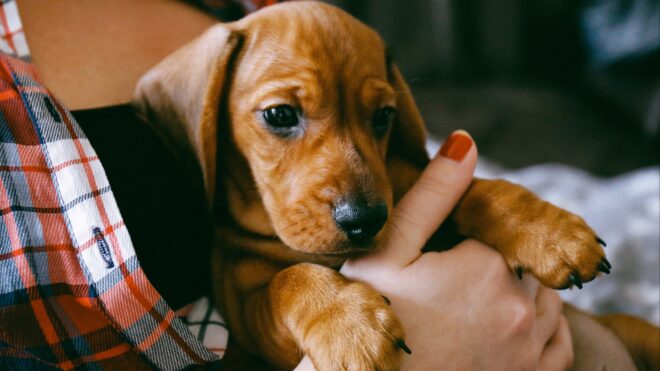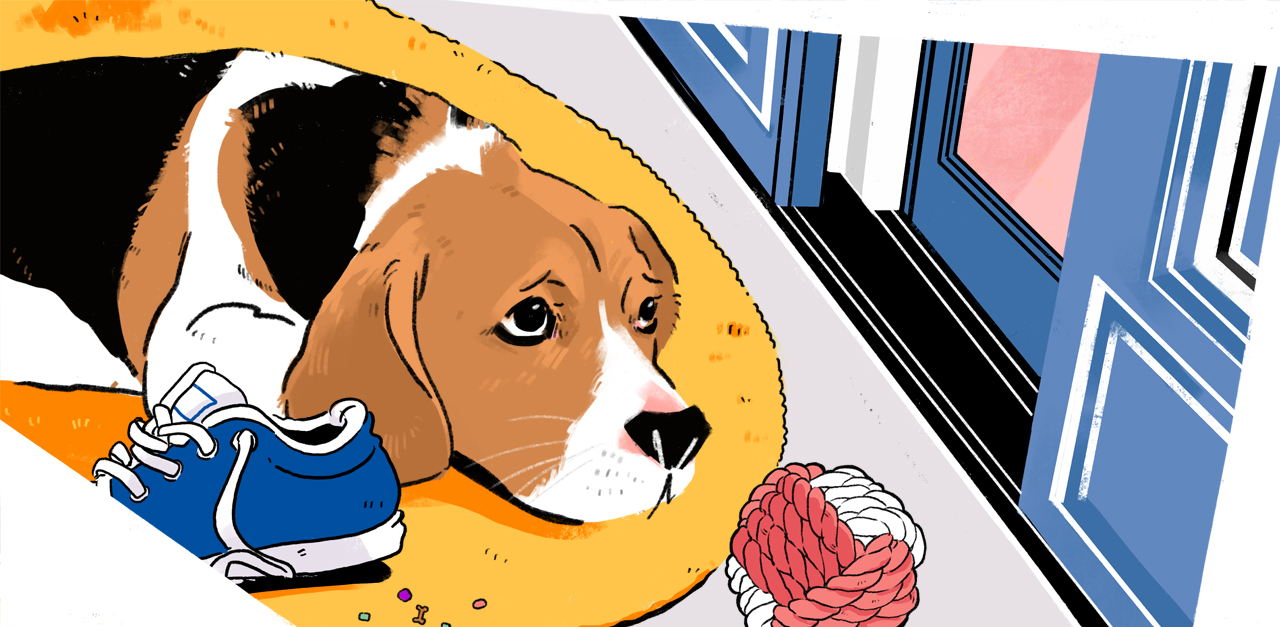
Does your puppy have an absolute meltdown every time you leave the house? Your dog might be suffering from puppy separation anxiety.
Separation anxiety in dogs ranges from mild to severe. Puppies with separation anxiety may destructively chew your belongings, bark or howl, have potty accidents, or intensely pace the room. If these behaviors regularly happen when you’re not home, puppy separation anxiety is the likely culprit.
This issue can be incredibly frustrating for pet owners. Normal training techniques may not seem to have any effect on the disruptive behavior, and man does that whining and crying get old! Fortunately, there are ways to deal with the problem head-on.
More from LittleThings: 8 Ways To Deal With Allergies To Household Pets
For mild to moderate cases of separation anxiety, you can likely retrain your puppy on your own. If your puppy has severe separation anxiety — for example, if he’s at risk of escaping or injuring himself — then you should contact a vet or dog training professional for advice.
What Is Puppy Separation Anxiety?
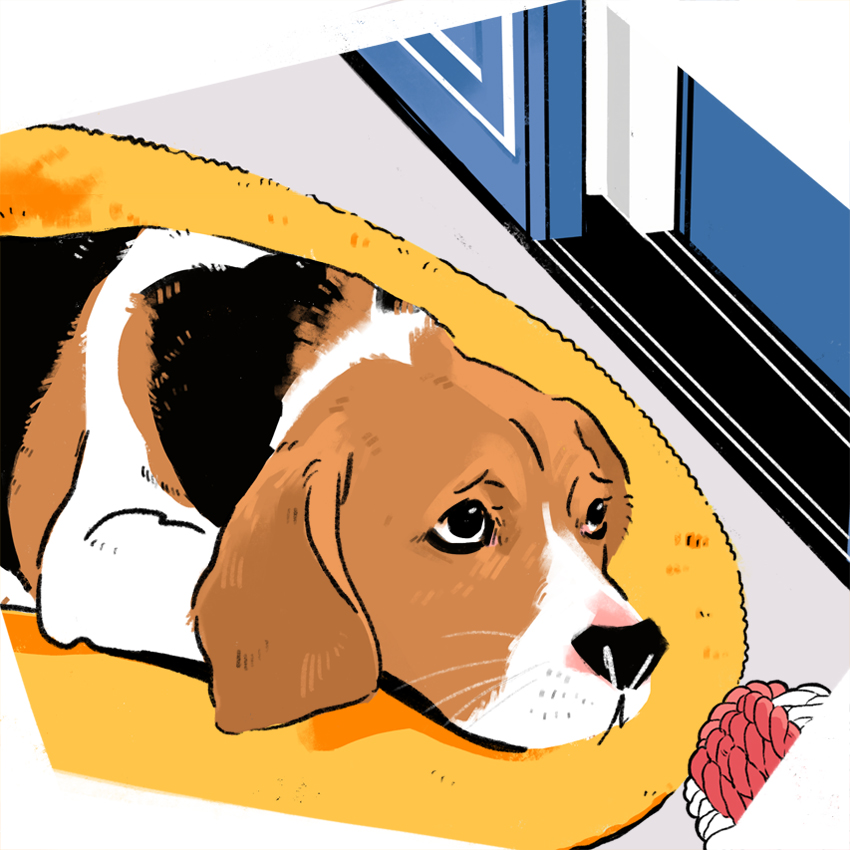
Puppies with separation anxiety exhibit clear signs of distress when their humans aren’t home. Separation anxiety may arise when dogs have experienced a dramatic change, like a change of guardian or schedule. Some dogs will remain prone to separation anxiety throughout their lives — but there are ways to alleviate your dog’s stress and minimize unwanted behaviors.
How To Identify Puppy Separation Anxiety
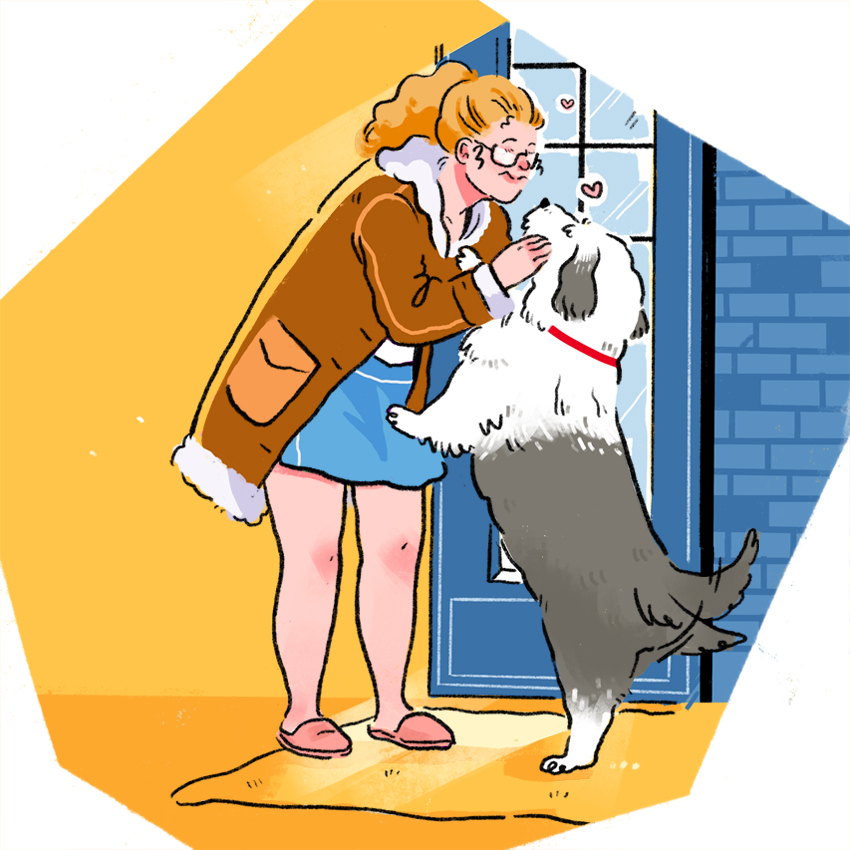
The most common signs of puppy separation anxiety include:
- Destructive chewing
- Urinating or defecating
- Digging or scratching
- Barking or howling
- Pacing
- Panting or drooling
- Attempting to escape
If these behaviors mainly happen when you’re not at home, and if you can rule out other behavioral or medical reasons, it’s likely that your dog has separation anxiety.
Separation Anxiety Signs Destructive Behaviors
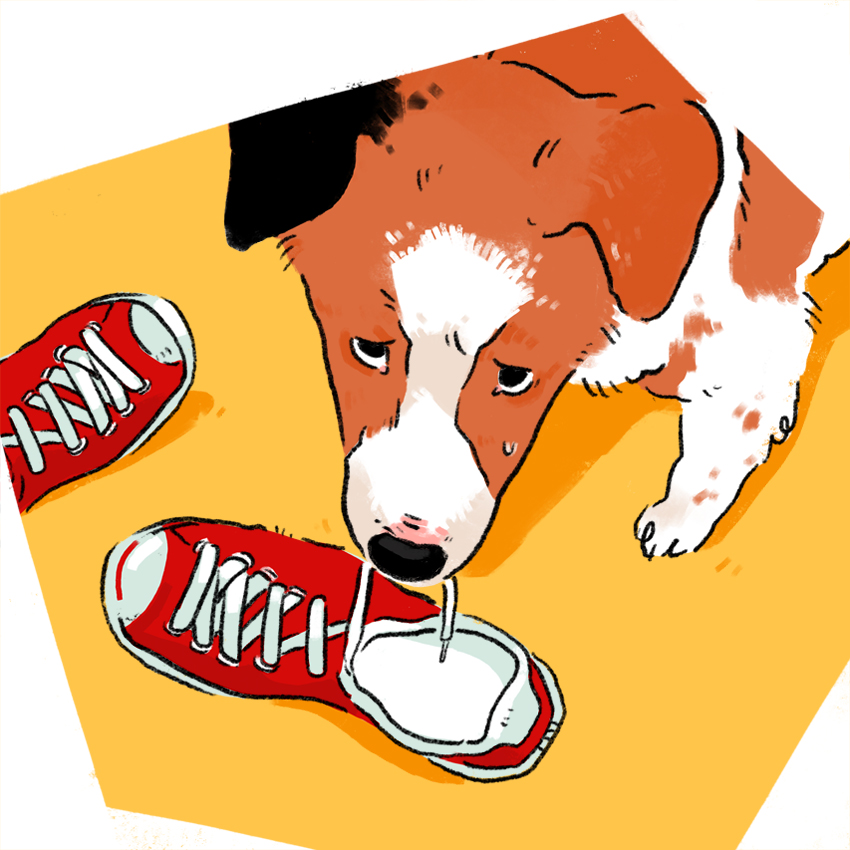
Some symptoms of separation anxiety can easily go unnoticed for some time. You’ll probably immediately realize what’s happening, though, if your pup chews up your things every time you’re gone!
Your dog may chew on furniture, pillows, or clothing. Your puppy may also scratch obsessively at the floor, door, or windows in an attempt to break free and reunite with you.
Accidents
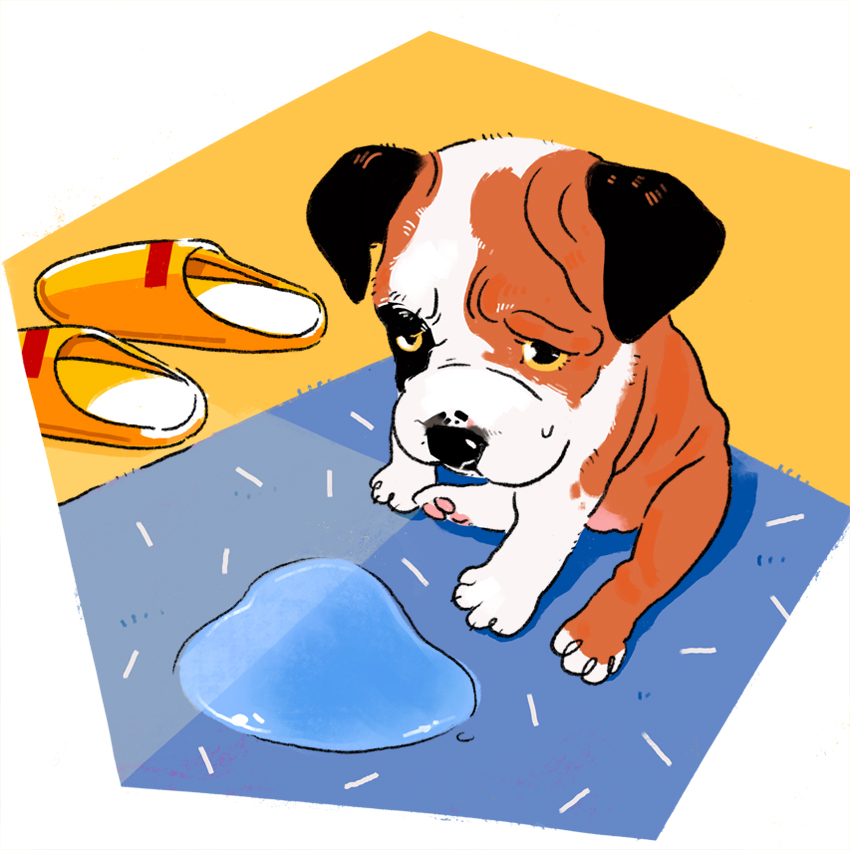
It’s sometimes difficult to tell whether your dog has accidents because they’re not fully house-trained or because they’re anxious. If your puppy only has accidents when they’re left home alone, is otherwise good about not potting inside, and exhibits other symptoms of separation anxiety, then separation anxiety is probably the reason.
Panting And Pacing
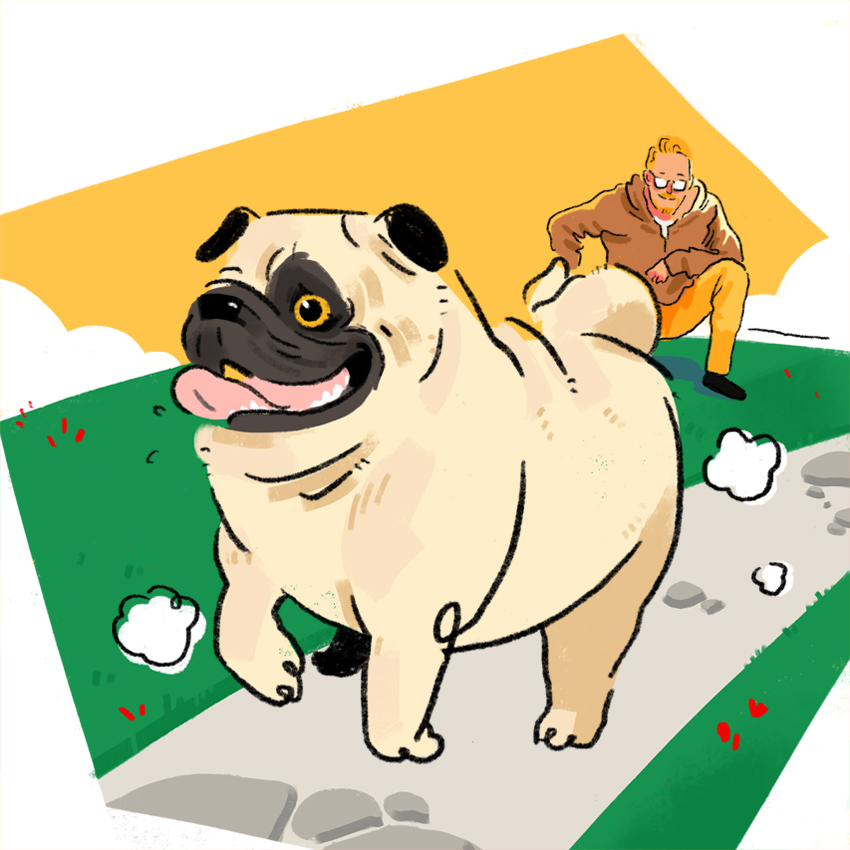
Puppies with separation anxiety also exhibit another sign of anxiety: intense panting and pacing. They might salivate excessively or drool, too. If your dog gets restless and nervous when you’re not around, there’s a good chance they have separation anxiety.
Escape Attempts
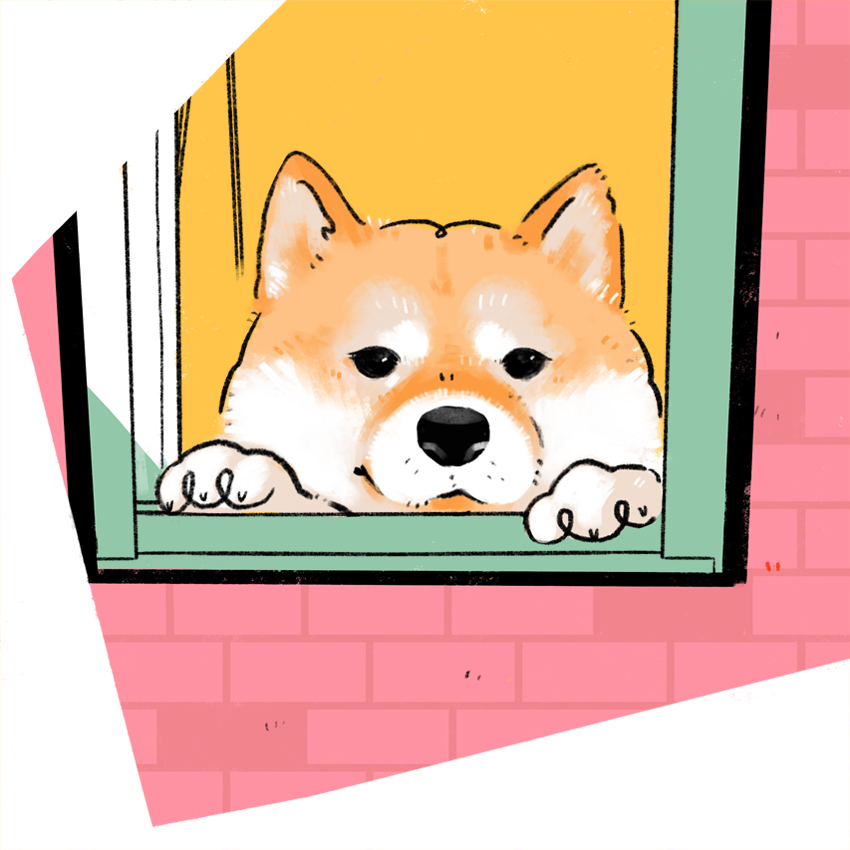
One extremely clear sign of separation anxiety: If your puppy tries to escape! Some puppies might try to escape because they are bored, but dogs with separation anxiety take things much further. They might become so determined to escape their crate or house that they actually hurt themselves in an effort to get back to you.
What Causes Separation Anxiety?
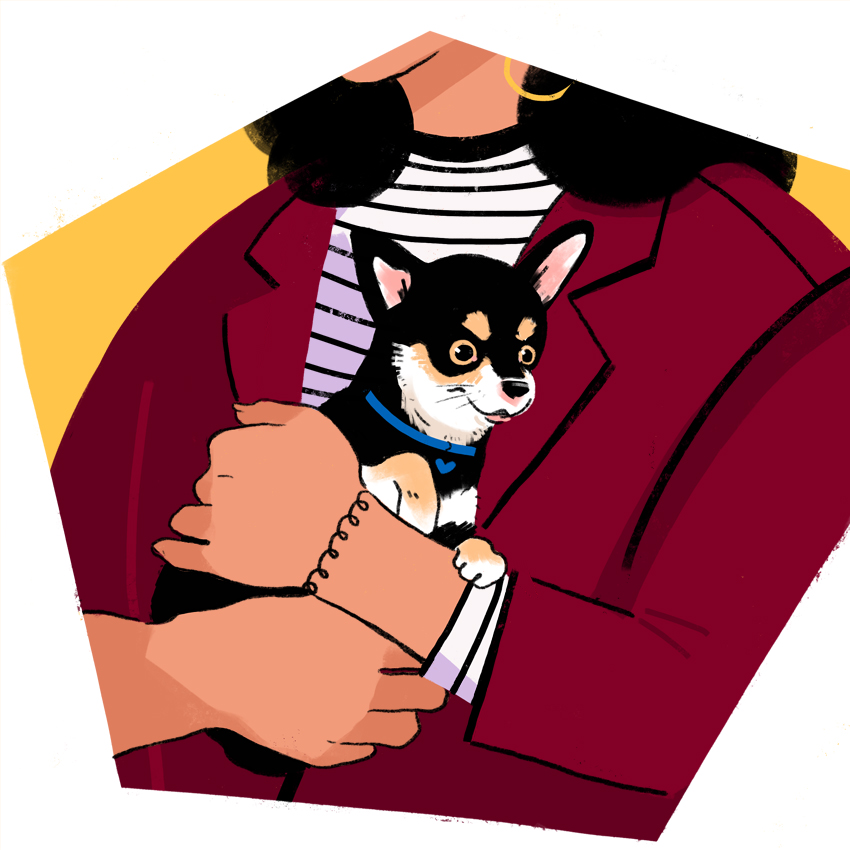
So, why do some puppies develop separation anxiety and not others? There is no conclusive evidence on this matter, according to the ASPCA. But the American Kennel Club reports that separation anxiety is more common in shelter dogs, who may have suffered early loss or abandonment, as well as in certain predisposed breeds.
For puppies, separation anxiety can happen simply because they’ve never been left alone before! A major life change, like a new owner, can also trigger anxiety.
How To Address Separation Anxiety
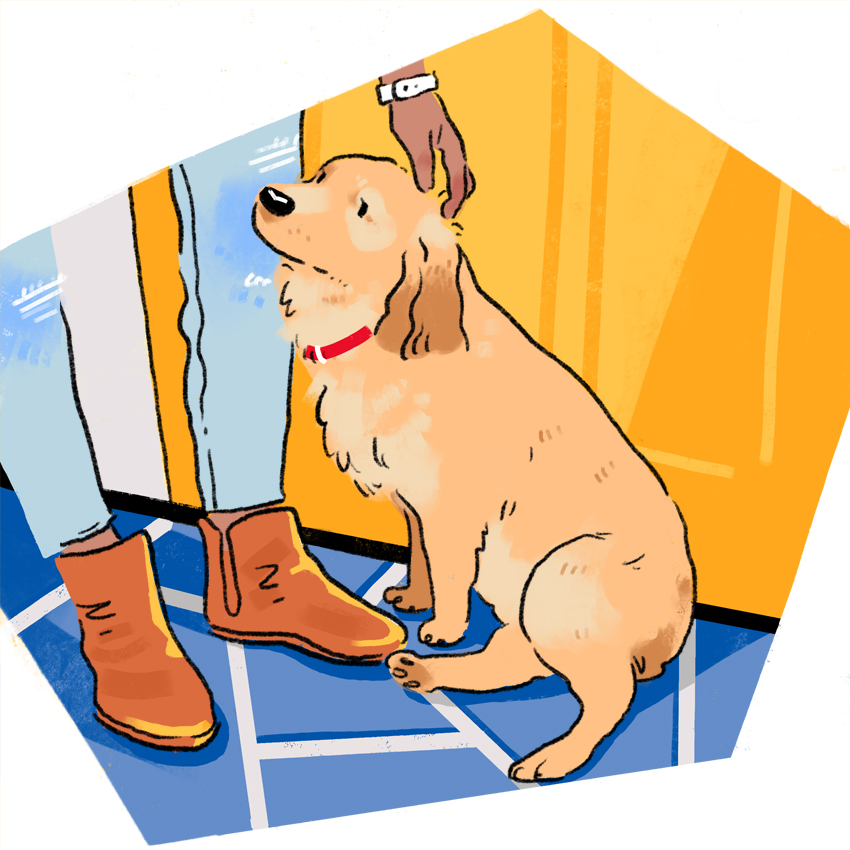
How can you help your puppy feel calm when you’re away from home? There are a few basic methods: conditioning, adjustments in training or routine, and medication. Conditioning and training adjustments will work best for mild to moderate cases of separation anxiety; for severe cases, you may have to ask your vet or a professional dog trainer for help.
Get Your Puppy Used To Your Absence
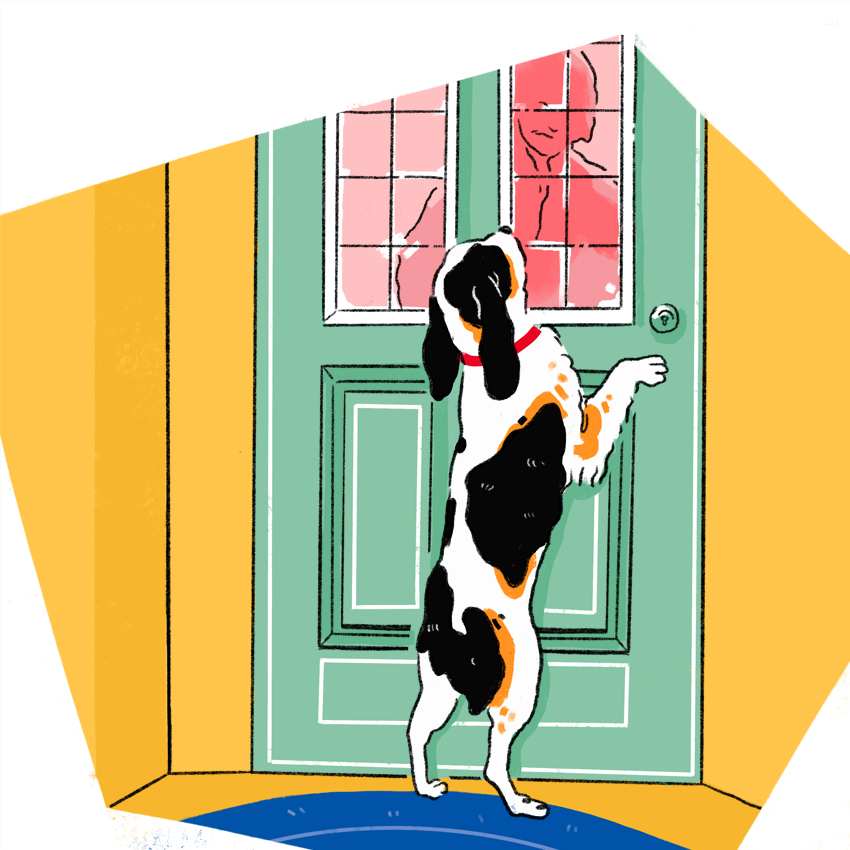
The first method is “conditioning.” The idea is to desensitize your puppy so that, over time, they learn that it’s no big deal for you to leave. You also want them to learn to associate your absence with good times, not bad times.
Start by leaving your puppy alone for short periods of time. Thirty minutes is a good place to start. Leave them in a safe, puppy-proofed area with a high-value treat that will occupy him while you’re away. Only give your puppy this treat while you’re gone, so they learn to associate it with your absence. Make sure their favorite items are nearby, too, like their bed, favorite toys, and maybe an item that smells like you. Then gradually increase the amount of time that you spend away.
Increase Your Dog’s Exercise

As with humans, exercise is a useful way to decrease stress and anxiety in dogs. Take your puppy for a long, active walk or engage in some playtime before you leave the house. This will also help tire your dog out, so they can hopefully rest when you leave.
Provide Plenty Of Toys
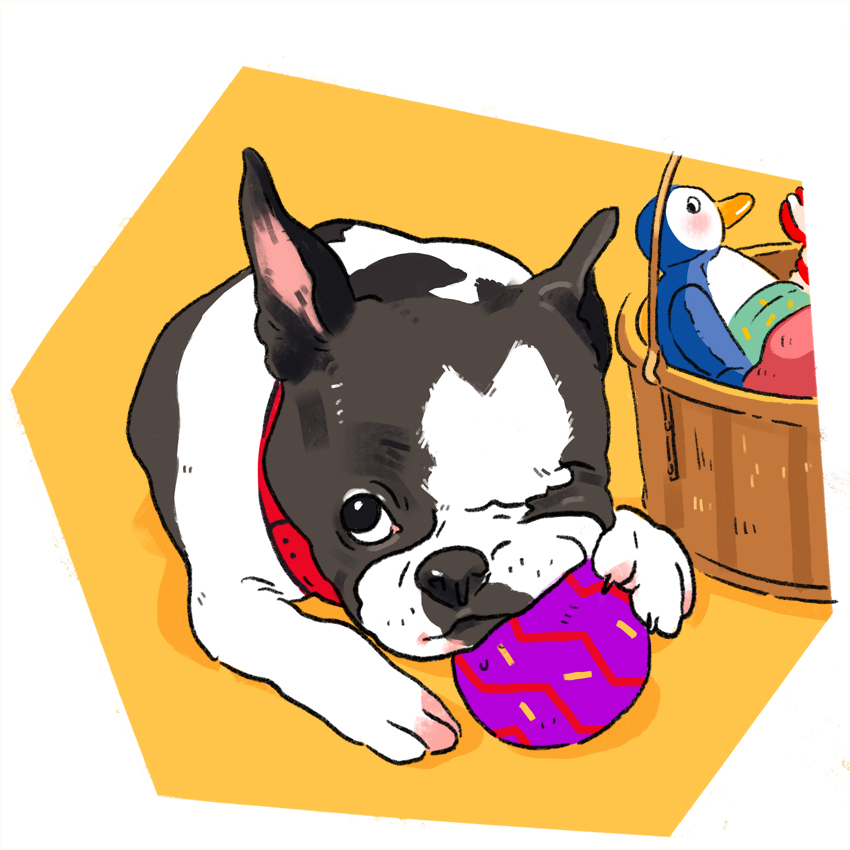
If your pup is thoroughly distracted by entertaining toys while you’re gone, they’re less likely to become hyperfocused on your absence. Leave your dog with toys that will keep them busy, like a treat-filled toy or a puzzle toy. Make sure to rotate the toys regularly to maintain your puppy’s interest.
Don’t Spoil Your Dog
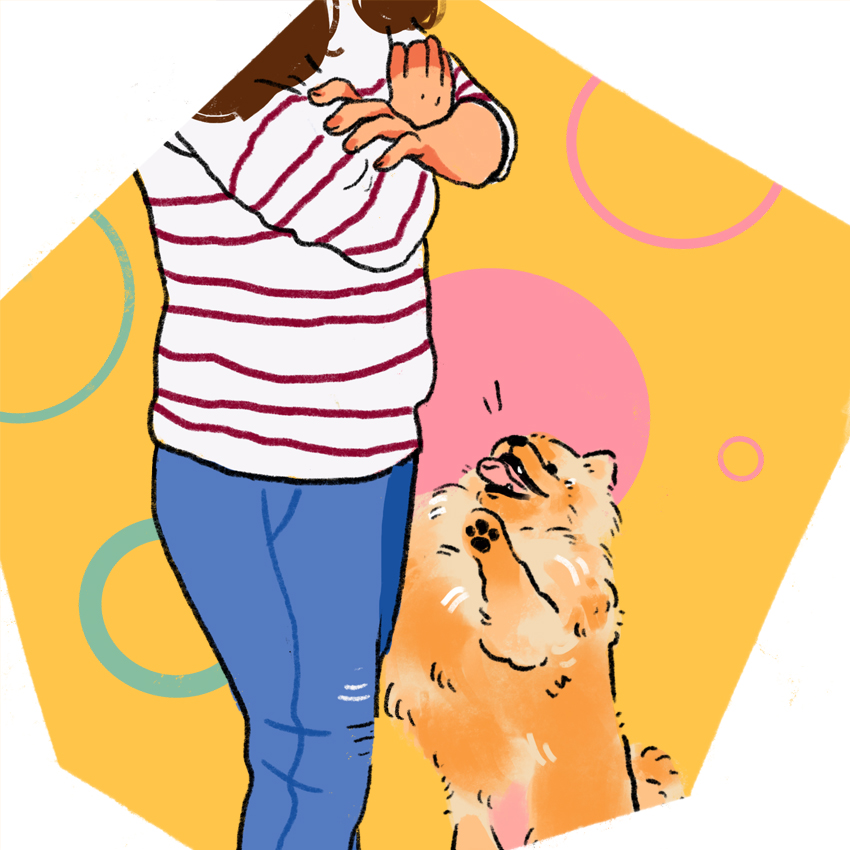
Another important element is to not reinforce your dog’s anxious behavior. Don’t make a huge deal every time you leave or come back. Give your puppy a pat on the head, give them his treat, and go. When you come home, try ignoring your dog for the first few minutes until they’re calm and relaxed, then praise and pay attention to them. Try not to reward them with attention if they jump all over you after you walk in the door!
Try Crate Training
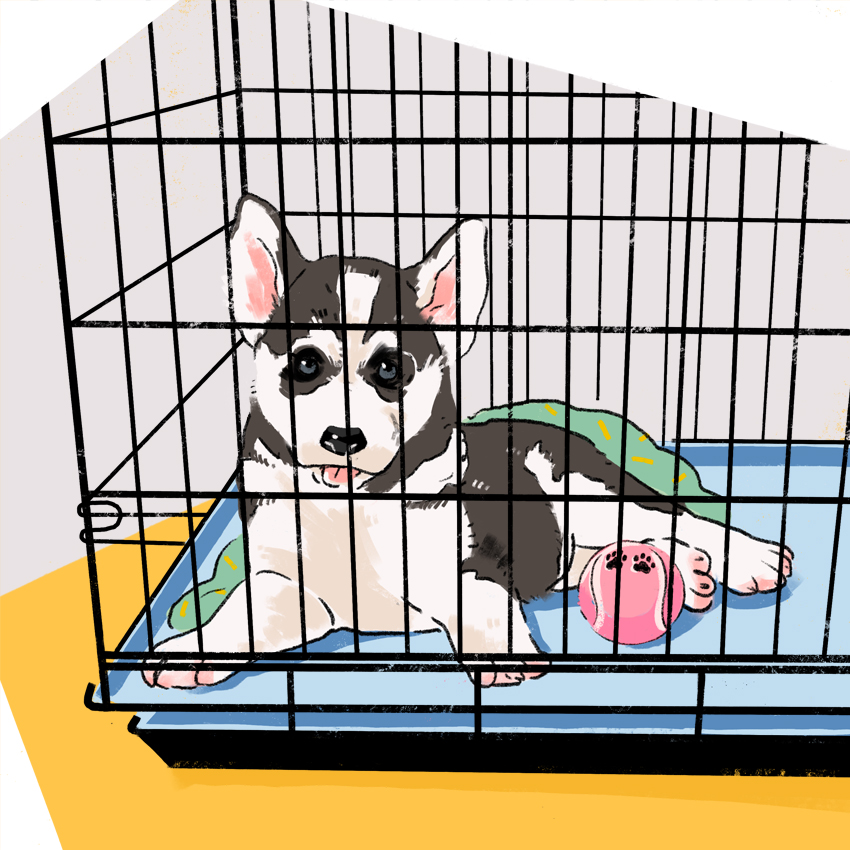
For some dogs, their crate is a safe, comfortable place to call their own, which makes it the perfect place to spend time while they’re alone. Of course, a crate also prevents your puppy from being too destructive while you’re gone.
You should never rush crate training. If your puppy isn’t trained to use a crate already, take your time with this method. The goal is to teach them that the crate is their happy place.
Crate training doesn’t work well for all anxious dogs. If your dog shows stress symptoms while in the crate, don’t force it, or you risk making the situation worse. Instead, confine them to another puppy-proofed area.
Try Medication If Necessary
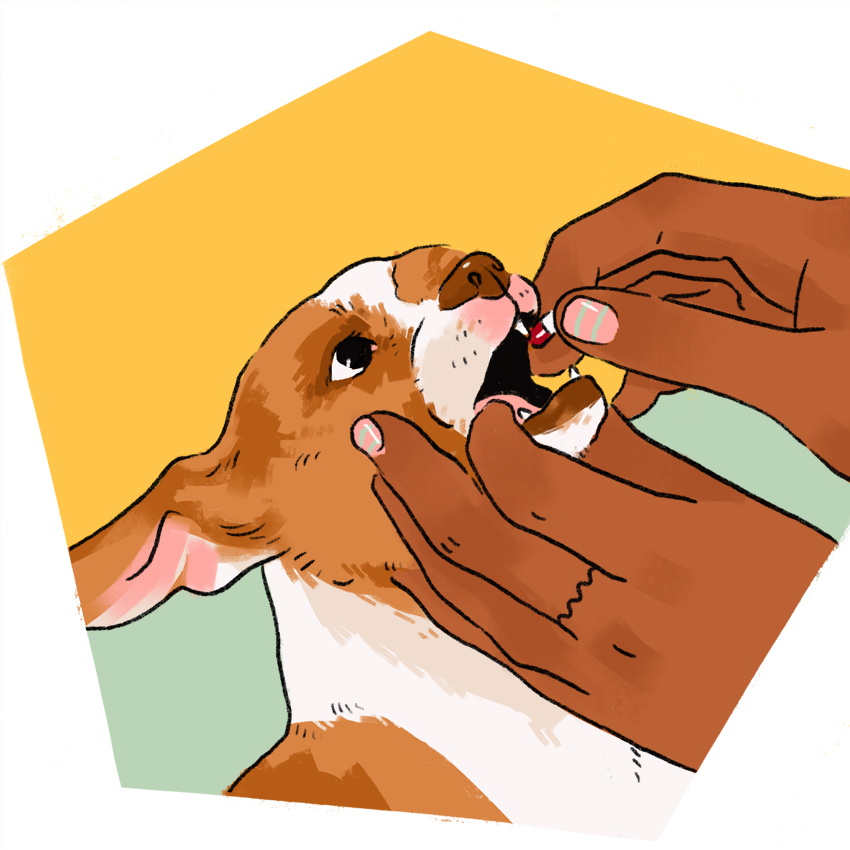
For most puppies with mild to moderate separation anxiety, behavioral training alone will curb the issue. Some puppies, though, are just wired to be anxious, and no amount of training will make a dent in the problem.
If that’s the case, ask a vet about medication. There are anti-anxiety medications, as well as holistic remedies, available for dogs.
Remember, every dog is one of a kind and has unique needs. Be patient and loving with your dog — eventually, you’ll figure out a solution that works for both of you!

